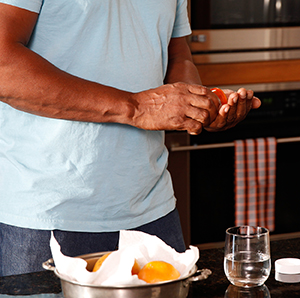In some cases, your healthcare provider may prescribe medicines to dissolve or prevent stones. Or medicine may be prescribed to stop an infection. Once the infection is controlled, the stone can be removed.
Medicines
Be certain your healthcare provider knows your full health history before you start kidney stone medicines. Some kidney stone medicines have serious side effects. The longer you take the medicine and the higher the dose, the more likely the side effects will occur. Let your provider know right away if you have any side effects.
For uric acid or cystine stones, your healthcare provider may prescribe medicines. You’ll take these for your lifetime. Medicines can’t dissolve calcium oxalate stones. But they often help prevent them. If you have an infection stone, your healthcare provider may prescribe antibiotics. You may take these before and after your stone is removed.
Uric acid stones are caused by too much uric acid in your urine. This can be worsened by a high-meat diet. Allopurinol reduces uric acid. The stone can be dissolved with bicarbonate, potassium citrate, or a similar drug.
Cystine stones are caused by too much cystine (an amino acid) in your urine. This condition is uncommon and inherited. Penicillamine or tiopronin reduces cystine. Bicarbonate, potassium citrate, or a similar drug dissolves cystine stones.
Infection stones are caused by kidney or bladder infections that change the chemical balance of your urine. Antibiotics control the infection. And they may slow the stone’s growth. Then, your stone is removed. Stone infections are caused by bacteria that make an enzyme called urease. Your healthcare provider may use a medicine to block this enzyme. Your healthcare provider may also prescribe medicines to relax the ureters. This will allow the stones to pass through more quickly.
Calcium stones are caused by a number of different things. If you have too much calcium in your urine, your healthcare provider may prescribe diuretics. If your urine has too much oxalate or if your stones are from too little citrate, your healthcare provider may give you a different medicine.


